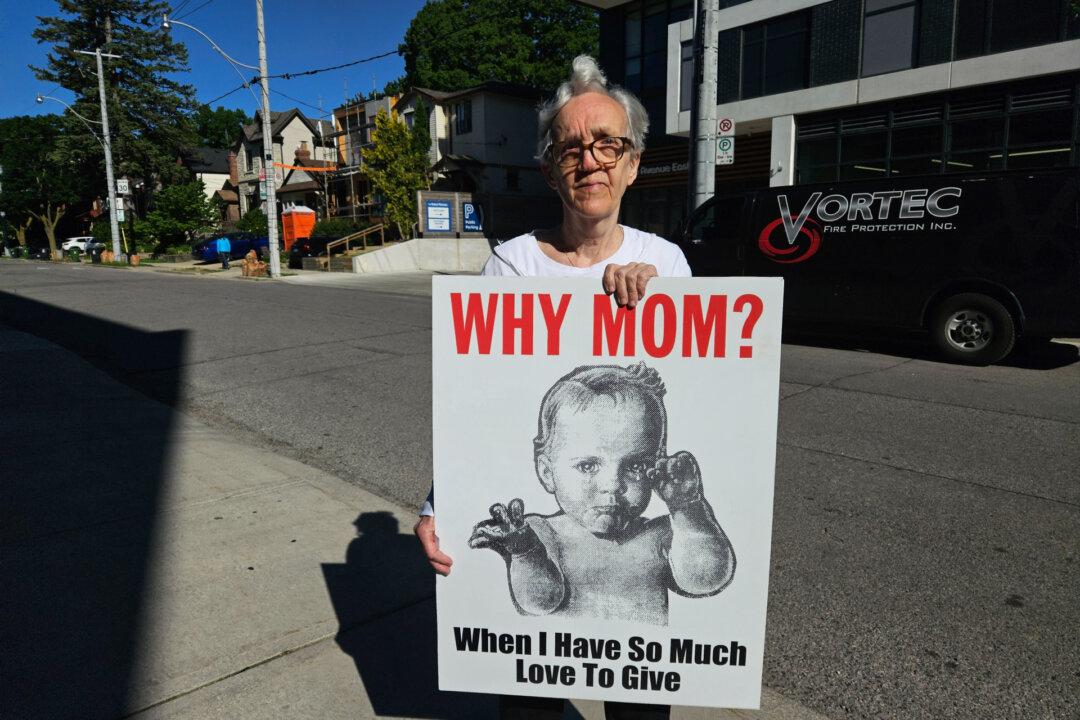TORONTO—If you didn’t already know it was there, you'd never spot the Morgentaler abortion clinic in Toronto’s upscale Leaside neighbourhood. On a quiet, tree-lined residential street, around the corner from a natural foods grocer and a gourmet pizza shop, is a nondescript grey door.
On either side of it are the entrance and exit to an underground parking lot. There’s no sign, only the words “clinic entrance” printed in white lettering on the door.





